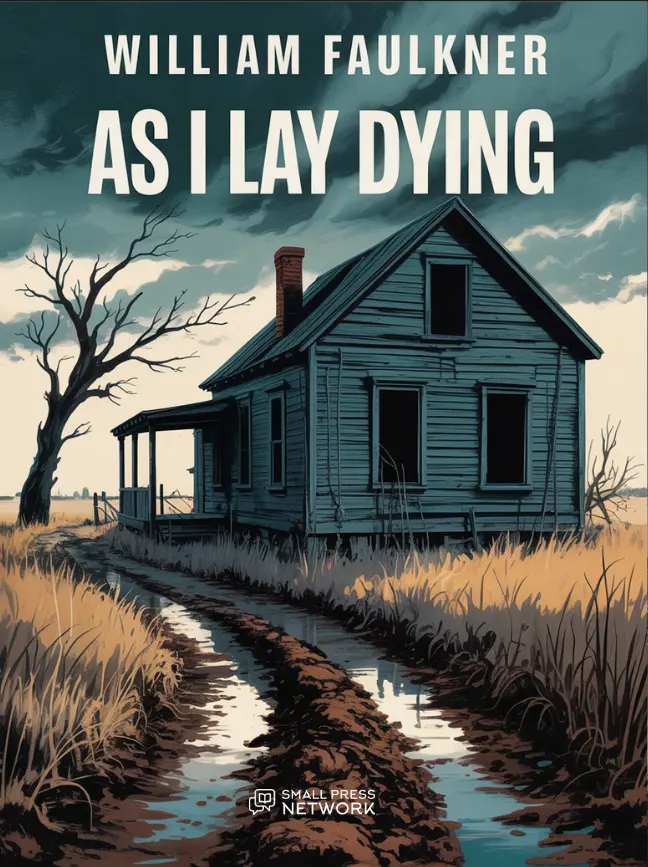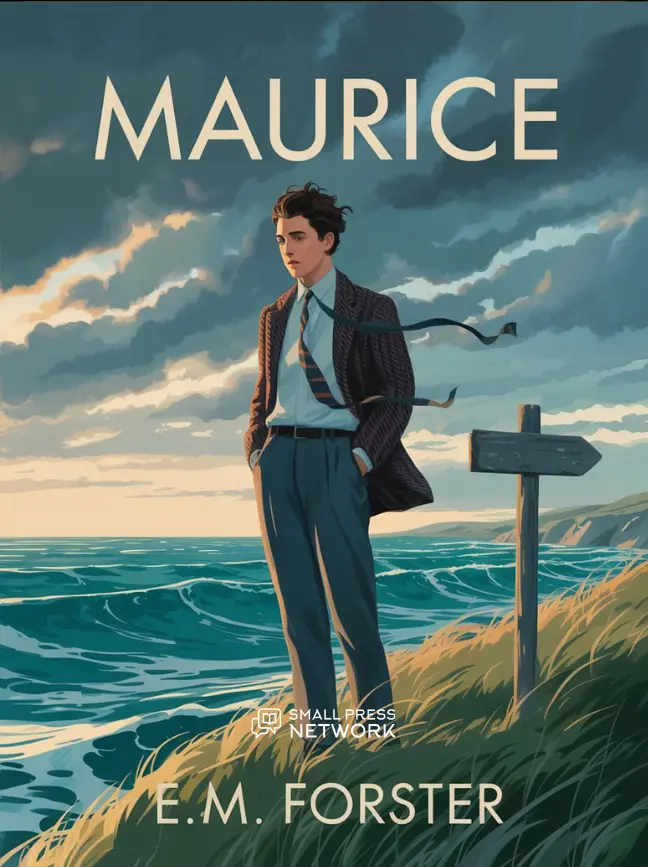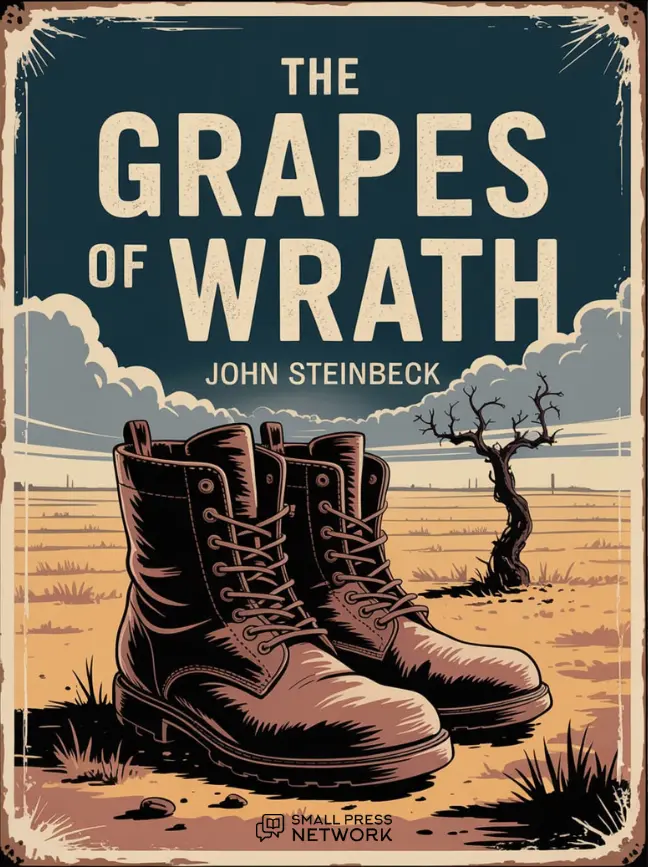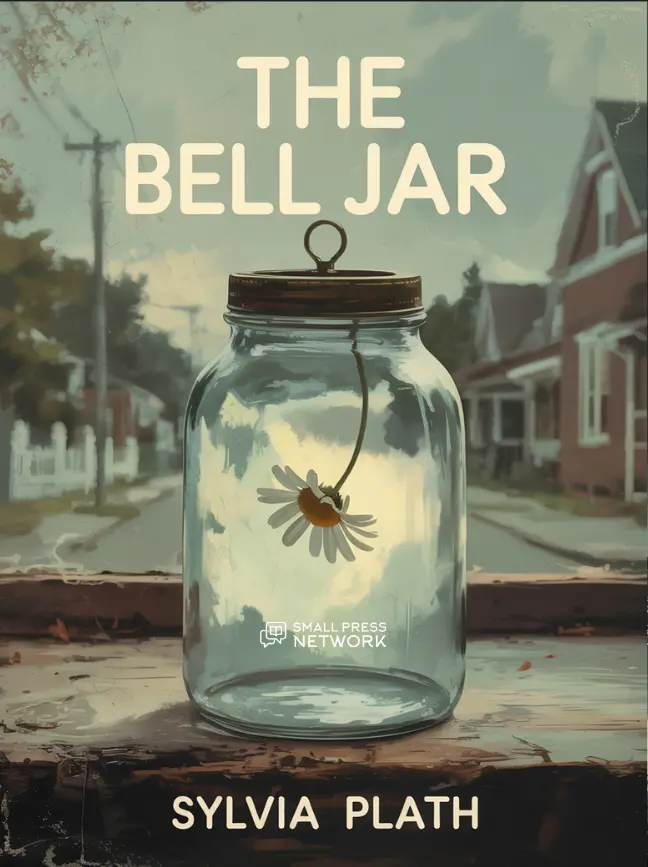TULL
S Oandtheythe finally got Anse to say what he wanted to do, and him and the gal
boy got out of the wagon. But even when we were on the bridge Anse kept on looking back, like he thought maybe, once he was outen the wagon, the whole thing would kind of blow up and he would find himself back yonder in the field again and her laying up there in the house, waiting to die and it to do all over again.
“You ought to let them taken your mule,” he says, and the bridge shaking and swaying under us, going down into the moiling water like it went clean through to the other side of the earth, and the other end coming up outen the water like it wasn’t the same bridge a-tall and that them that would walk up outen the water on that side must come from the bottom of the earth. But it was still whole; you could tell that by the way when this end swagged, it didn’t look like the other end swagged at all: just like the other trees and the bank yonder were swinging back and forth slow like on a big clock. And them logs scraping and bumping at the sunk part and tilting end-up and shooting clean outen the water and tumbling on toward the ford and the waiting, slick, whirling, and foamy.
“What good would that ’a’ done?” I says. “If your team can’t find the ford and haul it across, what good would three mules or even ten mules do?”
“I ain’t asking it of you,” he says. “I can always do for me and mine. I ain’t asking you to risk your mule. It ain’t your dead; I am not blaming you.”
“They ought to went back and laid over until to-morrow,” I says. The water was cold. It was thick, like slush ice. Only it kind of lived. One part of you knowed it was just water, the same thing that had been running under this same bridge for a long time, yet when them logs would come spewing up outen it, you were not surprised, like they was a part of water, of the waiting and the threat.
It was like when we was across, up out of the water again and the hard earth under us, that I was surprised. It was like we hadn’t expected the bridge to end on the other bank, on something tame like the hard earth again that we had tromped on before this time and knowed well. Like it couldn’t be me here, because I’d have had better sense than to done what I just done. And when I looked back and saw the other bank and saw my mule standing there where I used to be and knew that I’d have to get back there some way, I knew it couldn’t be, because I just couldn’t think of anything that could make me cross
that bridge ever even once. Yet here I was, and the fellow that could make himself cross it twice, couldn’t be me, not even if Cora told him to.
It was that boy. I said “Here; you better take a holt of my hand,” and he waited and held to me. I be durn if it wasn’t like he come back and got me; like he was saying They won’t nothing hurt you. Like he was saying about a fine place he knowed where Christmas come twice with Thanksgiving and lasts on through the winter and the spring and the summer, and if I just stayed with him I’d be all right too.
When I looked back at my mule it was like he was one of these here spy- glasses and I could look at him standing there and see all the broad land and my house sweated outen it like it was the more the sweat, the broader the land; the more the sweat, the tighter the house because it would take a tight house for Cora, to hold Cora like a jar of milk in the spring: you’ve got to have a tight jar or you’ll need a powerful spring, so if you have a big spring, why then you have the incentive to have tight, well-made jars, because it is your milk, sour or not, because you would rather have milk that will sour than to have milk that won’t, because you are a man.
And him holding to my hand, his hand that hot and confident, so that I was like to say: Look-a-here. Can’t you see that mule yonder? He never had no business over here, so he never come, not being nothing but a mule. Because a fellow can see ever now and then that children have more sense than him. But he don’t like to admit it to them until they have beards. After they have a beard, they are too busy because they don’t know if they’ll ever quite make it back to where they were in sense before they was haired, so you don’t mind admitting then to folks that are worrying about the same thing that ain’t worth the worry that you are yourself.
Then we was over and we stood there, looking at Cash turning the wagon around. We watched them drive back down the road to where the trail turned off into the bottom. After a while the wagon was out of sight.
“We better get on down to the ford and git ready to help,” I said.
“I give her my word,” Anse says. “It is sacred on me. I know you begrudge it, but she will bless you in heaven.”
“Well, they got to finish circumventing the land before they can dare the water,” I said. “Come on.”
“It’s the turning back,” he said. “It ain’t no luck in turning back.”
He was standing there, humped, mournful, looking at the empty road beyond the swagging and swaying bridge. And that gal, too, with the lunch- basket on one arm and that package under the other. Just going to town. Bent on it. They would risk the fire and the earth and the water and all just to eat a sack of bananas. “You ought to laid over a day,” I said. “It would ’a’ fell some by morning. It mought not ’a’ rained to-night. And it can’t get no higher.”
“I give my promise,” he says. “She is counting on it.”




